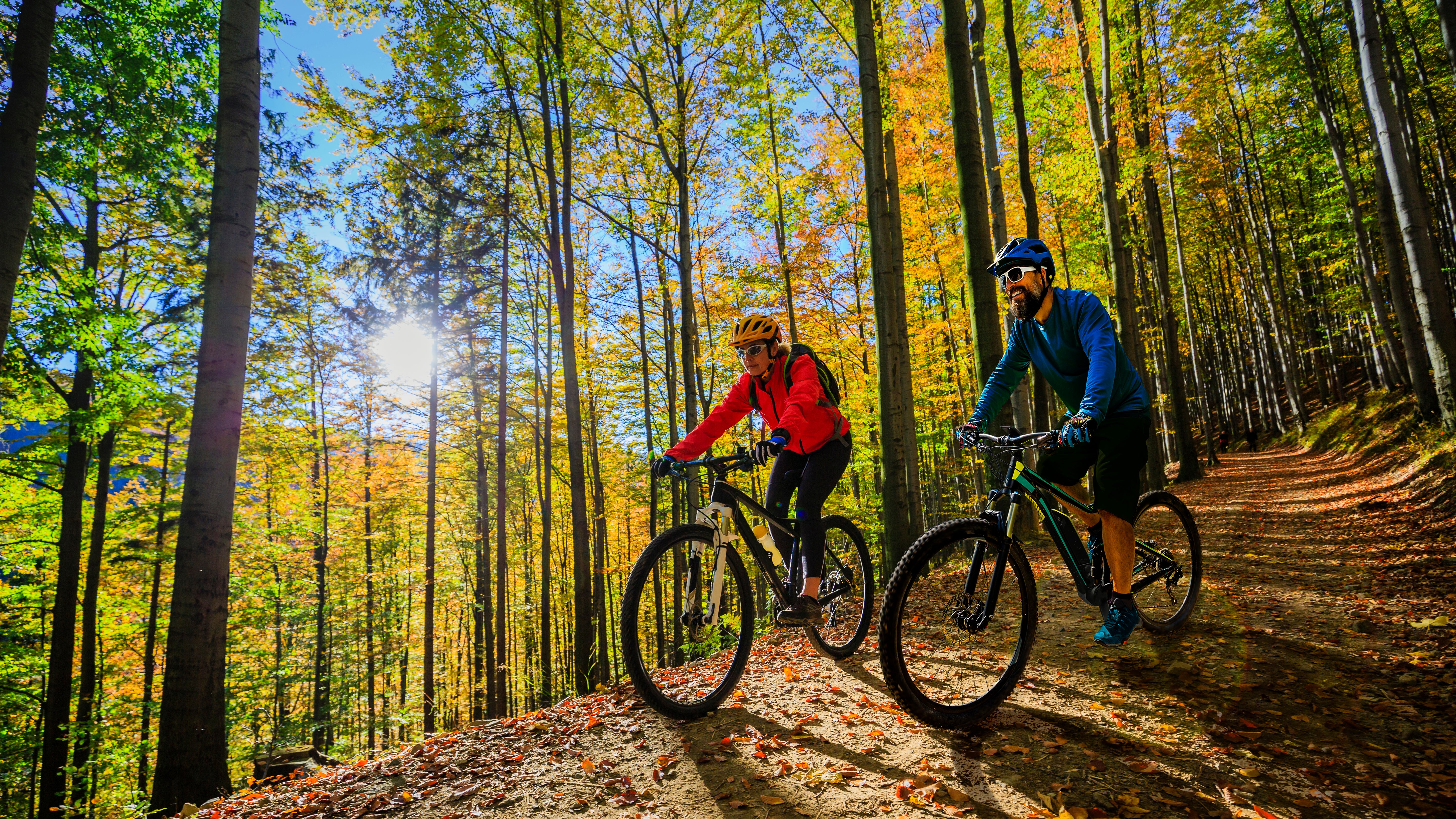Last month, six GCs shared some of their practical tips to avoid burnout. An underlying thread across the discussions was the importance of finding time away from work — time to rest and travel and spend time in nature. The beauty of travel and spending time in nature is that they are practices that can be low cost and which you can do alone or with others to increase the benefits of social connection and shared experiences.
Positive practices takeaways
Philosopher and author Alain de Botton, in the Art of Travel writes, “if our lives are dominated by a search for happiness, then perhaps few activities reveal as much about the dynamics of this quest — in all its ardour and paradoxes — than our travels.”
From anticipating the adventure ahead (planning an itinerary, deciding where to stay, even learning a language) to posting photos while on your trip and regaling (or so you think) people when you return — we can all appreciate the joys of travel.
But travel is more than fun. It is good for our mental health. Through rest, it resets our nervous systems. It opens us to new ways of thinking and makes us solve problems to ensure the trip is successful — from managing money and logistics to interacting with different cultures and people. We return to work happier and productive. The rest and novelty seem to buffer us against burnout. How does this happen?
Travel opens our minds
- A recent Washington Post article asked why we are different people when we travel and how to transform ourselves when we return. Sociologist Karen Stein described the power of travel as, “a time that is sort of set aside from our everyday lives … it can create a flexibility … that allows us to see things in a different way, have different experiences or do things a little bit differently.”
- Neuropsychologist Paul Nussbaum described the benefits of travel on the brain, “when engaging in something that’s novel and complex, your brain thrives.” Traveling takes us out of our routine and, “it is when we get out of that and challenge ourselves that there’s a benefit to brain health.”
- Psychologist Jaime Kurtz recommended cross-cultural experiences or a challenging hike as a more meaningful trip than a boozy week in Las Vegas. She recommends slowing down by taking a long walk or a bike tour. She has found that people became happier when they incorporated a popular travel hobby like photography into their daily lives.

A recent Forbes article summarized more of the findings of the effects of travel on the brain:
- A 20-year study by psychologist Dr. Thomas Gilovich found that, over time, people’s satisfaction with material things decreases and they prefer to spend their money on experiences.
- Dr. Michael Merzenich, in Soft-Wired: How the New Science of Brain Plasticity Can Change Your Life, found that people who travel to new places and learn languages, continuing to experience new things as they age, are “far less likely to develop cognitive decay.”
- South Korean researchers found (after interviewing 225 tourists who traveled overseas) that, life satisfaction increased 15 days before traveling and continued for a month after returning home.
- A 2014 study from the Academy of Management Journal found a positive connection between travel and creativity, theorising that “travel forces you to think in different ways and develop ‘cognitive flexibility’ which is a key component of creativity.”
We can incorporate travel into our lives through regular vacation time or long weekends throughout the year. We can supercharge the benefits of travel by choosing to travel sustainably with a minimal ecofootprint, increasing our satisfaction and happiness knowing our travel has supported wildlife and communities. We can also increase the benefits of travel by including nature as part of our adventure.
Nature and its power to recharge us
Philosopher William James said “My experience is what I agree to attend to.” Our attention is our most important currency but it is a finite resource, particularly if your daily work is to solve problems, draft contracts, and constantly switch tasks like lawyers often do. But nature can help us to restore our attention and much more.
Harvard biologist Edward O. Wilson described the term, “biophilia” as “an innately emotional affiliation for human beings to other organisms” — nature uniquely influences our mental and physical health and we naturally want to connect with it.
Walking in nature helps us process stress better
While there is an extensive body of research about the benefits of nature and its positive effects., a recent study (September 2022) by the Lise Meitner Group for Environmental Neuroscience finally showed that activity in the amygdala (the central brain region involved in stress processing) decreased as a result of a one-hour walk in nature. The research examined the brains of 63 healthy volunteers before and after a one-hour walk in either a nearby forest or a shopping street with traffic. Those who walked in nature showed decreased activity in the amygdala. “The results support the previously assumed positive relationship between nature and brain health, but this is the first study to prove the causal link.”
Spending time in nature helps to refocus our attention
Psychologists Rachel and Stephen Kaplan, used Attention Restoration Theory (ART) to suggest that natural settings are a highly effective way of giving our task-focused thinking a rest and restoring our mental energy was explained in my earlier article, How Nature Can Reduce Mental Fatigue.
Cognitive neuroscientist David Strayer postulated that being in nature restores depleted attention circuits, which can then help us be more open to creativity and problem-solving. “When you use your cell phone to talk, text, shoot photos,” he says, “you’re tapping the pre-frontal cortex and causing reductions in cognitive resources.” He and his colleagues showed that hikers on a four-day backpacking trip could solve 47 percent more puzzles requiring creativity when compared to a control group of people waiting to take the same hike. Although other factors may account for the results, like exercise and camaraderie, previous studies have suggested that nature itself may play an important role.

Gregory Bratman, of Stanford University, found that nature may impact our moods in other ways too. In one study, 60 participants were randomly assigned to a 50-minute walk in either a natural setting (oak woodlands) or an urban setting (along a four lane road). The participants were asked to perform tasks requiring short-term memory before and after the walk. Those who walked in nature experienced less anxiety, negative rumination, had more positive emotions, and performed better on the memory task.
Nature helps us make new connections and be more creative
By engaging in nature we are able to let our minds wander and engage our default mode network (see my earlier article Positively Legal: The Power of the Unfocus) – this allows our brain to make new connections, solve problems, and be more creative. Nichols also quotes Dr. Michael Merzenich, saying that all of the things inherently special to a particular environment — the feel of the water, the smell of the ocean, and the sound of the birds are “inherently personally calming, rewarding, and intriguing.” Merzenich goes on to say that “the little changes in a natural environment — the sound of the waves or waterfalls, the negative ions in the air, breezes … engage the brain’s reticular formation, which calculates the amount of alertness needed to deal with the new stimulation.” Most of these small changes allow us to be alert but still allow us to relax and “let the default mode network hum along quietly.”
Exercising in nature increases its effects
Japanese studies into shinrin-yoku (forest bathing) showed that spending time in forest environments promoted lower concentrations of cortisol, lower blood pressure, and greater parasympathetic nerve activity than people in urban environments. In one experiment conducted in Japan, participants were assigned to walk in either a forest or in an urban centre (taking walks of equal length and difficulty) while having their heart rate variability, heart rate and blood pressure measured. The participants also filled out questionnaires about their moods, stress levels, and other psychological measures. Results showed that those who walked in forests had significantly lower heart rates and higher heart rate variability (indicating more relaxation and less stress), and reported better moods and less anxiety, than those who walked in urban settings. The researchers concluded that there’s something about being in nature that had a beneficial effect on stress reduction, above and beyond what exercise alone might have produced.
Wallace J. Nichols book, Blue Minds, focusing on how water makes us happier, discussed increasing the benefits of exercise by including water. He summarized research showing that aquatic exercise improves not only fitness but also respiratory endurance beyond “dry” aerobics. In addition, “like other forms of aerobic exercise, swimming releases endorphins and endocannabinoids (the brain’s natural cannabis-like substances) which reduces the brains’ response to stress and anxiety” summarizing research on runner’s high.
Nature helps reduce loneliness
Finally, a recent review of global studies on the impact of green spaces found that quality green spaces (such as parks) in cities increases “opportunities for both social connection and health,” including helping to reduce loneliness.
How to include nature in your life
If we can’t combine nature and travel we can surely find ways to include nature in our daily lives: a morning walk in a park or by the beach, walking meetings, swimming, sitting quietly and watching birds or other animals, looking at photos of nature. Block out some time in your diary to try it even for short periods as it seems we don’t need a lot of effort for the benefits.
Manage stress to avoid burnout
While we have considered how travel and nature can help us manage our stress and avoid burnout, not all stress is bad. In our final discussion next month, our same GCs discuss their thoughts on stress and I consider how can we embrace stress in our work to make us better lawyers.




